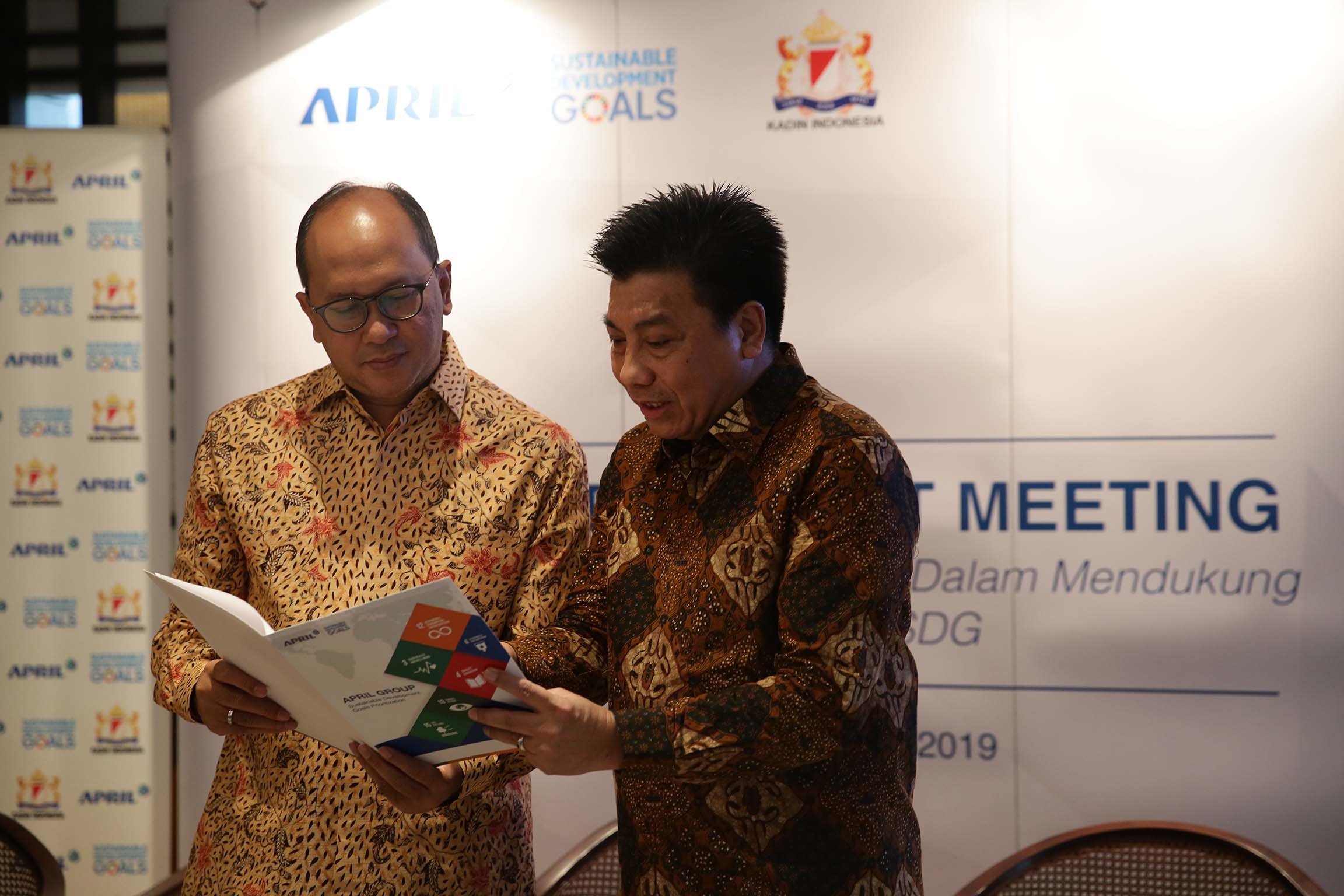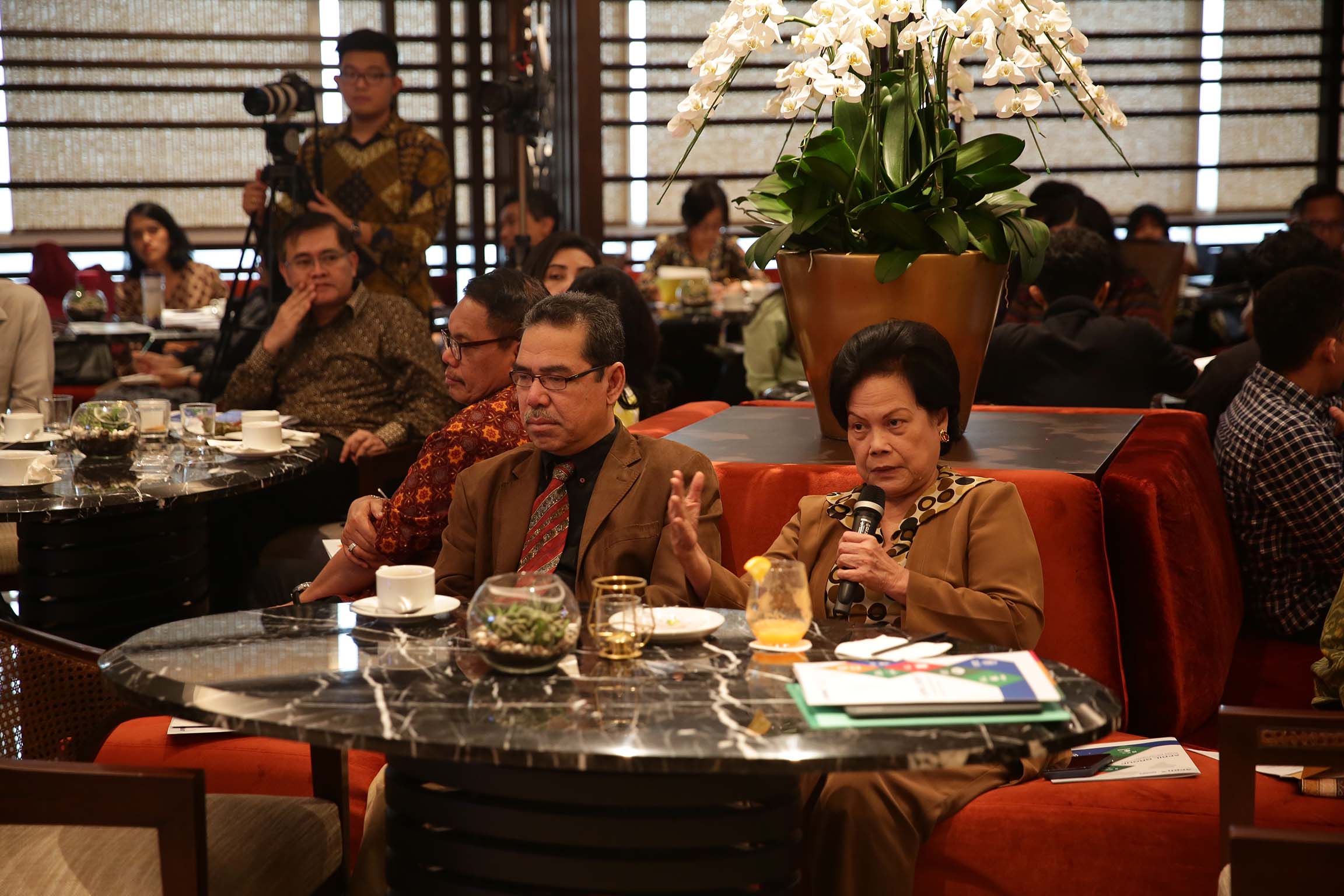APRIL Prioritises SDGs for Long Term, Sustainable Impact in Indonesia
APRIL has prioritised seven of the United Nation’s Sustainable Development Goals, following the completion of an in-depth analysis of its current social and economic contribution in Riau Province, Indonesia.
The analysis was undertaken jointly by APRIL and sustainability consultants from PwC. The report, which captures the methodology and recommendations, marks the completion of the first phase of the project which uses the SDGs as a framework to measure the impact of APRIL’s operations.
Responsible Production and Consumption (Goal 12), Climate Action (Goal 13) and Life on Land (Goal 15) were identified by APRIL as Core Goals or those that have the strongest alignment to the company’s operations and its sustainability commitments and where it can continue to have the greatest impact at local, national and International levels.
These are supported by what APRIL calls Catalytic Goals, through which it can have an exponential impact on surrounding communities. These goals are: Good Health and Wellbeing (Goal 3), Quality of Education (Goal 4), Clean Water and Sanitation (Goal 6), and Partnerships for the Goals (Goal 17).
PwC’s analysis covered APRIL’s current community programs, operations, and investments, as well engagement with a broad group of stakeholders including community representatives with the SDGs providing as a frame of reference. The next phase of the project involves developing a framework to measure APRIL’s baseline impact on selected targets under these priority goals.
The final stage of the project will be a report on impact measurement, which will help to guide future investments and strategies.
The United Nations Development Programme (UNDP) Indonesia is involved with the project as a key member of the steering committee which oversees the process to ensure alignment with the priorities of the local and national Government. The project also complements the company’s collaboration with the UNDP and Riau provincial government, to localise the implementation of SDGs in three districts in Riau, in partnership with the Tanoto Foundation.
“Business has a role to play in achieving the 2030 development agenda in Indonesia,” said Sihol P Aritonang, President Director, PT. Riau Andalan Pulp and Paper, the operating arm of APRIL Group. “The value of this initiative is that it helps in the development of a common, unifying framework to shape, measure and report on our contribution to sustainable development in Riau and Indonesia.”
“The SDGs allow us to connect our strategies and contributions to global and national priorities while translating this to action and benefits on the ground at the community or village level,” he added.
The Phase 1a report was presented at a recent KADIN (Indonesian Chamber of Commerce and Industry) event in Jakarta.

Roslan Roeslani, Chairman, KADIN (Indonesian Chamber of Commerce and Industry) and Sihol P Aritonang, President Director, PT. Riau Andalan Pulp and Paper, reviewing the Phase 1a report at the recent KADIN event
Speaking at the event, Bayu Krisnamurthi, Head of the SDG Network, Institut Pertanian Bogor, highlighted the Indonesian Government’s initiative in releasing Presidential Decree No.59/2017 on the sustainable development goals. “The government has prepared the platform and now it’s time for companies to be more proactive in implementing SDGs. I’m sure we can work together with potential sectors to realize this global agenda,” he said.

Al Azhar and Erna Witoelar, members of the APRIL Stakeholder Advisory Committee, pictured at the KADIN event
Shinta Kamdani, Vice Chairman, International Relations, KADIN, said the private sector had a pivotal part to play in helping Indonesia achieve the SDGs. “Plans can only be realized with the active involvement of the government, companies, academia and non-government organizations. The initiatives and concrete steps taken by private companies show that SDGs and businesses can coexist, and even help companies grow,” she said.




